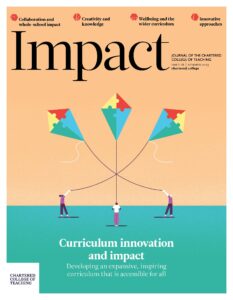Developing a whole-school culture of oracy
Written by: Paul Butler

6 min read
PAUL BUTLER, TRUST LEAD PRACTITIONER, WASHWOOD HEATH MAT, UK.
FORMERLY HEAD OF ENGLISH, NEW COLLEGE LEICESTER, UK
Talk plays a vital role in both the academic and pastoral development of students. To ensure that students are ready for the complex, challenging and ever-changing life of the 21st century, they must be equipped with key knowledge and skills appropriate to the world – not just now but also in the future. Research conducted by Deloitte (2015) surveyed the FTSE top 100 companies, asking which skills would be most desired in 2030. Eight out of the top 12 skills had an oracy focus, whether speech recognition, oral expression or active listening. Therefore, an oracy-rich education can have a significant impact on life chances once students have left education.
As identified through Voice 21’s Oracy Benchmarks (2020), a school that effectively embeds a whole school culture of oracy places oracy at the heart of classroom practice, whilst also providing extra-curricular
Join us or sign in now to view the rest of this page
You're viewing this site as a guest, which only allows you to view a limited amount of content.
To view this page and get access to all our resources, join the Chartered College of Teaching (it's free for trainee teachers and half price for NQTs) or log in if you're already a member.
- Britton J (1970) Language and Learning. Coral Gables, Florida: University of Miami Press.
- Beiting M, Alper R, Luo R and Hirsh-Pasek Kathy (2000) Keep the Ball Rolling: Sustained Multiturn Conversational Episodes Are Associated With Child Language Ability. American Journal of Speech-Language Pathology 31(5): 2186-94.
- Deloitte (2015) Talent for survival: Essential skills for humans working in the machine age. Available at: www2.deloitte.com/uk/en/pages/growth/articles/essential-skills-for-working-in-machine-age.html (accessed 23 March 2023).
- Gaunt A and Stott A (2018) Transforming Teaching and Learning Through Talk: The Oracy Imperative. London: Rowman & Lichfield.
- Voice 21 (2020) The Oracy Benchmarks. Available at: https://voice21.org/wp-content/uploads/2020/06/Benchmarks-report-FINAL.pdf (accessed 20 April 2023).
5
1
vote
Please Rate this content
Subscribe
Please login to comment
0 Comments
Oldest
Newest
Most Voted
Inline Feedbacks
View all comments










